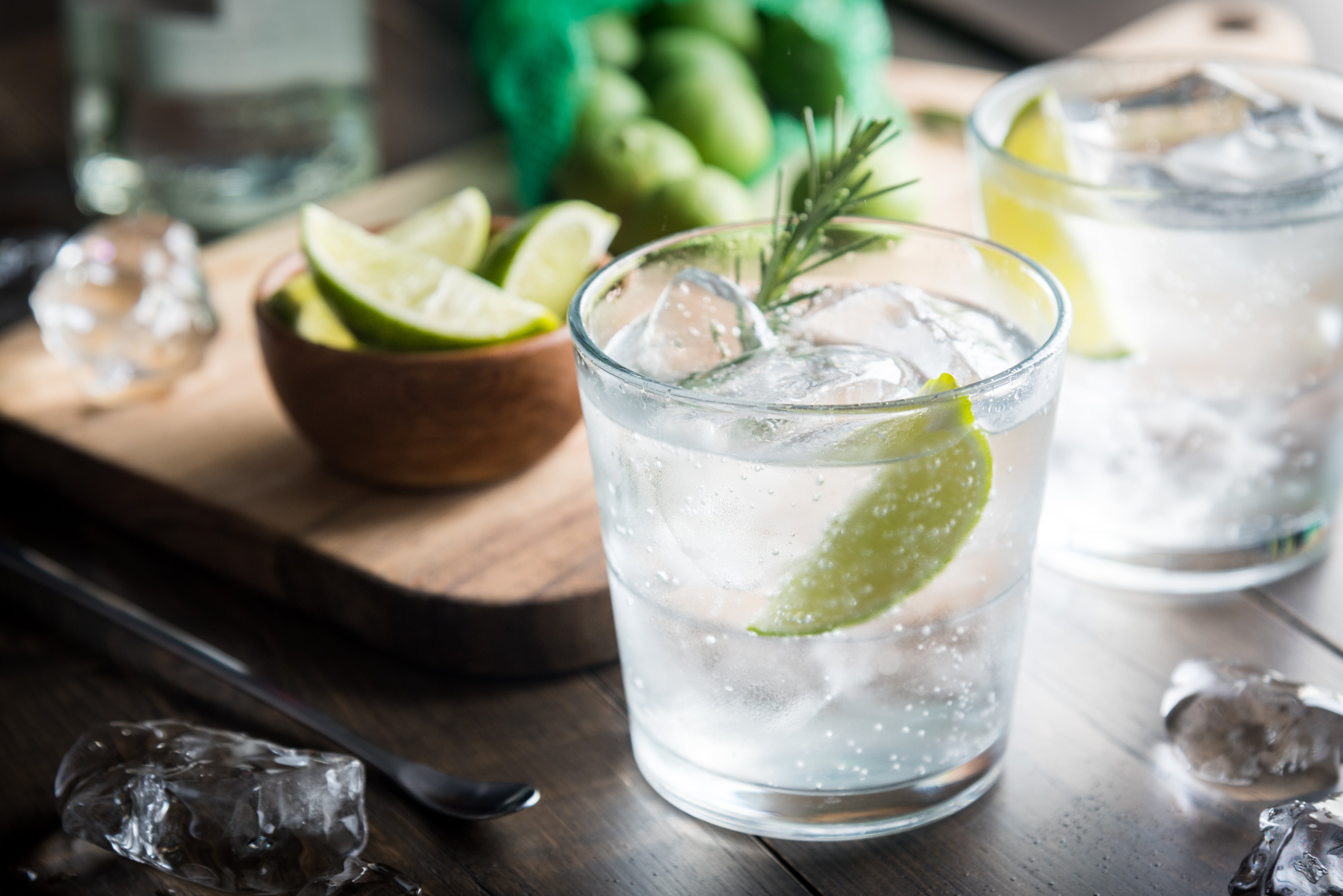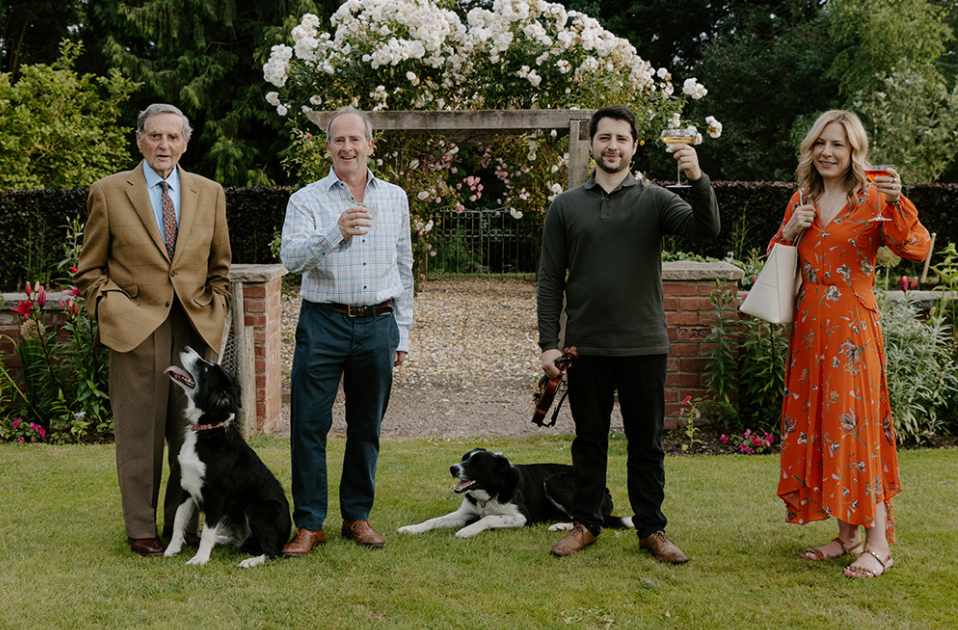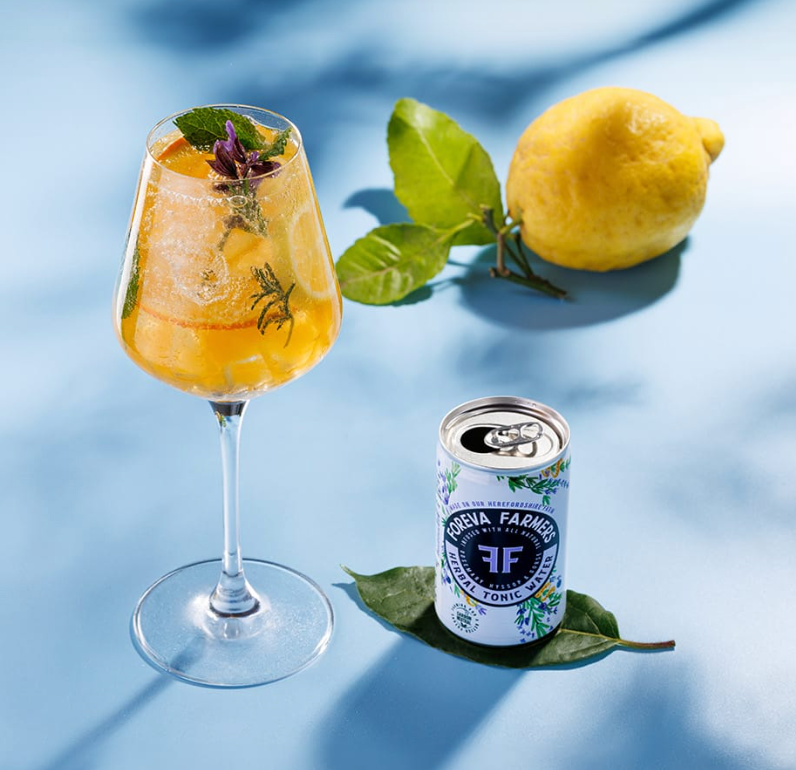Farm ditches crops for a green harvest of fizzy drinks
The Layton family have converted their cattle farm into a sustainable drinks company on course to produce tens of millions of cans a year – and which hopes to take on the likes of Schweppes and Fever Tree

Your support helps us to tell the story
From reproductive rights to climate change to Big Tech, The Independent is on the ground when the story is developing. Whether it's investigating the financials of Elon Musk's pro-Trump PAC or producing our latest documentary, 'The A Word', which shines a light on the American women fighting for reproductive rights, we know how important it is to parse out the facts from the messaging.
At such a critical moment in US history, we need reporters on the ground. Your donation allows us to keep sending journalists to speak to both sides of the story.
The Independent is trusted by Americans across the entire political spectrum. And unlike many other quality news outlets, we choose not to lock Americans out of our reporting and analysis with paywalls. We believe quality journalism should be available to everyone, paid for by those who can afford it.
Your support makes all the difference.As thousands protest the tractor tax, one family of farmers has quietly started a sparkling and green drinks revolution on their farm.
The three-generation Layton family – including grandfather Joe, aged 95, who refuses to retire – has moved from cattle to canning and is challenging the biggest names in soft drinks by making their own sustainable of tonic water on their farm in Herefordshire.
The move – one of the largest green investments by a family farm into the drinks industry – stemmed from a routine inspection of their potato crop which led to a discussion on farming innovation called anaerobic digestion, which breaks down organic waste to create renewable energy and fertilizer. This has allowed them to use silage to take the farm’s energy off grid and sell the surplus electricity, gas and CO2 generated.
Nick Layton converted his old cattle shed into a 21st century cannery and the soft drinks industry is now watching to see if his beverages business, Foreva Farmers, will turn into a giant-slayer in the fizzy drink sphere as its cans roll off a production line where cows once calved.

They take sustainability a step further by utilizing the CO2 generated during the anaerobic digestion process. Instead of releasing it into the atmosphere, they capture and repurpose this CO2 to carbonate their drinks. This closed-loop system not only minimises waste but also reduces their reliance on external sources of CO2, further lowering their carbon footprint.
As well as his elderly dad, Nick’s family team includes his wife Kate and two sons Oliver and Charlie. Instead of discussing over the kitchen table the price of potatoes, grass, beef and milk, now fizzy drinks dominate the conversation as their home-made cans fill with tonic water and ginger ale on a production line capable of manufacturing tens of millions of can each year.
Started in September, they’re already producing 7,000 cans per hour, 24 million per year. By the second quarter of 2025, they will be producing 33,000 cans per hour – a staggering 115 million cans a year – as they hope to give established brands such as Schweppes and Fever Tree a run for their money. As well as their classic tonic water, they make cans of elderflower and honey, cucumber and rosemary, and a spiced apple cola.

“We believe we are the most sustainable soft drinks company in the world,” says Nick. After just two months they are on a path of 20 per cent week-on-week growth of sales. They are in more than 40 shops, including Gloucester M5 service station which is one of the biggest farm shops in the UK.
It is a total reinvention for the Laytons, who are also using bore holes to get natural water and their aluminium for the tins is 85 per cent recycled. Last week Jeremy Clarkson had a batch dropped off at Diddly Squat, his Oxfordshire estate.
“We are proud to say that, since our launch, we have achieved over 100 per cent month on month growth, with consistent repeat orders from all of our stockists,” says Nick.
Join our commenting forum
Join thought-provoking conversations, follow other Independent readers and see their replies
Comments